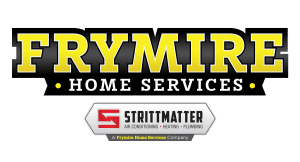The Ultimate Air Conditioning Guide
Stepping into a cool home on a hot summer day and feeling your air conditioner hard at work is one of the absolute best feelings, especially when you are tired and sweaty. After a long day of working or playing outdoors, you deserve to be pampered. Likewise, having a nice, cool home plays an integral role in getting an ideal night’s sleep, which is imperative for a productive day.
That’s why choosing the right AC system for your home is so important. Fortunately, home air conditioning systems are more energy-efficient than ever before. If you’re looking to upgrade or replace your cooling system, the current AC options available can help keep you cool and save you money in the long term, but knowing where to start can feel overwhelming. This guide is designed to help you navigate through the complex decision-making process and equip you with helpful information that will allow you to select the ideal AC system for your home’s size, comfort needs, and budget.
8 Things Every Homeowner Should Know About AC Systems
1. What Is Central Air Conditioning?
Central air conditioning is one of the more common methods of home cooling. Essentially, air is cooled at a central location (hence the name “central AC”) and is then pushed throughout your home via ductwork and fans. Your air conditioner’s compressor plays an integral role in the AC process; it circulates the necessary refrigerant for heat exchange through the coils of the indoor and outdoor unit. It also applies energy to the refrigerant. Here’s how it all works:
- Your thermostat sends a signal to the circuit board in your furnace calling for cold air.
- The circuit board turns on the furnace/blower motor inside your home, along with the fan and compressor outside of your home.
- The blower motor draws in warm air through your home’s ductwork.
- Air from the ductwork is then blown through the evaporator coil, which turns warm air into cold.
- Cool air is dispersed throughout your home through your air vents.
- Refrigerant in your AC absorbs the heat from the indoor air as it flows through the evaporator coil and transitions from a low-pressure gas to a high-pressure liquid.
- The heated refrigerant is pumped to the condenser. This condenser blows outside air across a different set of coils, which removes the heat from your home that was absorbed by the refrigerant.
- The refrigerant is then cooled down, turned back into a low-pressure gas, and returned into the home.
This process continues until the desired set temperature on your thermostat is achieved.
2. What Components Make Up an AC System?
The way your AC functions depends on the type of system you have, but most are made up of these three components:
- Refrigerant: This is a chemical blend found in either a fluid or gaseous state. It absorbs heat from the environment and can provide refrigeration when combined with compressors and evaporators.
- Outdoor Condensing unit: This is a temperature-controlled device that lives outside your home. This includes the fan, compressor, condenser coil, and refrigerant.
- Indoor unit: The indoor unit carries the evaporator coil, which sits on top of the furnace inside your home. The coil absorbs the heat from your living space, creating cool, dehumidified air.
The outdoor and indoor units work together to send the refrigerant back and forth from the outside condenser coil to the inside evaporator coil.
3. What Are My Cooling Options?
There are two prominent types of AC systems commonly used across the country:
- Central air conditioning: Uses ductwork and vents to disperse cool air throughout your home in order to achieve the desired setting on your thermostat.
- Ductless mini-split: A ductless, or mini-split, air conditioning system, works very similarly to a regular central AC system, but without the ductwork. It is mounted on the wall in a single room and is used to cool smaller spaces without wasting energy cooling other rooms.
Which System Is Best for My Home?
It depends on your desired energy efficiency, the size of your home, and how sensitive you are to noise. Ductless mini-split systems offer increased energy efficiency, but they don’t run quite as quietly as a central air conditioning system. The experts at Frymire Home Services can help you decide which option would fit your home and your comfort needs most adequately.
4. Is AC Maintenance Really All That Important?
Yes, this is a very important step to ensure your system is running efficiently. Not only will annual AC maintenance ensure your systems lasts for the entire duration of its expected service life (and possibly even longer), it will also alert you to small issues before they escalate into larger, more expensive problems.
5. What Is Included in AC Maintenance?
When you schedule AC maintenance for your system, you can expect the technician to do the following:
- Check your filter, replacing or cleaning it as needed
- Inspect and tighten electrical connections
- Inspect fuses and wiring
- Test and inspect relays and pressure controls
- Check to ensure that your thermostat is working properly
- Check for refrigerant leaks
- Check your ductwork for energy loss
- Check the drain pan
- Flush and treat condensate drain with anti-algae
- Clean your system’s evaporator coil
- Check the outside unit for damage
- Inspect base pan and remove any obstructions
- Remove any leaves, dirt, and debris from your outside unit
6. What Should I Do If My AC Stops Working?
If your home’s air conditioner stops working, there could be a variety of possible explanations. Here are some common culprits to troubleshoot before calling on a professional:
- Check Your Thermostat. Make sure your thermostat program settings are correct, that it’s set to cool and not heat. Also, check the batteries to make sure they’re in good shape. If your thermostat isn’t working, it could be an electrical issue, which means you’ll need the help of pro.
- Check Your Vents. Make sure all of your vents are open, ensuring that they are not blocked or obstructed by anything around them. If there still isn’t airflow, this may signal an issue.
- Check Your Circuit Breaker. Your problem might be solved with a simple switch. It’s very common for circuit breakers to trip, so make sure the right circuit is switched on.
- Check Your Filter. If your filter is dirty and clogged, you won’t get any airflow. The buildup can also cause dirt to accumulate in your ducts and your evaporator coils to freeze, which can clog the air even more. A dirty filter is often the cause of system short-cycling (which is when your AC comes off and on for short periods of time without cooling your home).
- Check Your Air Ducts. If you have access to your ducts, look for any visible tears and make sure that the joints are sealed well. You can close up any leaks with foil-faced tape, or contact your local HVAC company to provide professional solutions.
7. Are There Any Special Programs or Offers to Save Money?
Yes! Enjoy value, peace of mind, and protection with Frymire’s Victory Comfort Club VIP maintenance plan, which offers valuable discounts to customers, including heating and cooling maintenance, VIP priority installation services, free diagnostic visits, repair discounts, and A LOT more!
8. What Should I Know Before Having a New AC System Installed?
Here are a few important things you should consider before your new system installation:
- Get Your Old System Thoroughly Inspected. You should have your old AC system evaluated to see if it needs repair rather than replacing. This can also help you compare prices to determine which route would be more cost-effective long-term. Be sure to get detailed estimates before making any decisions.
- Understand Your Filter and Thermostat Options. While speaking with our technicians, ask them to explain your options and be sure to ask questions about anything you don’t understand. This is your chance to learn more from the experts (and our team is happy to share our extensive knowledge with you!).
- Understand the Time Frames. The time it takes to install an air conditioner varies across makes and models, so ask for a breakdown of how long your AC installation will take to complete, especially if your installation is taking place during the hottest days of summer.
For a higher degree of comfort call 972-913-2881 or contact us today to schedule a consultation — we take just as much pride in your home as you do!






